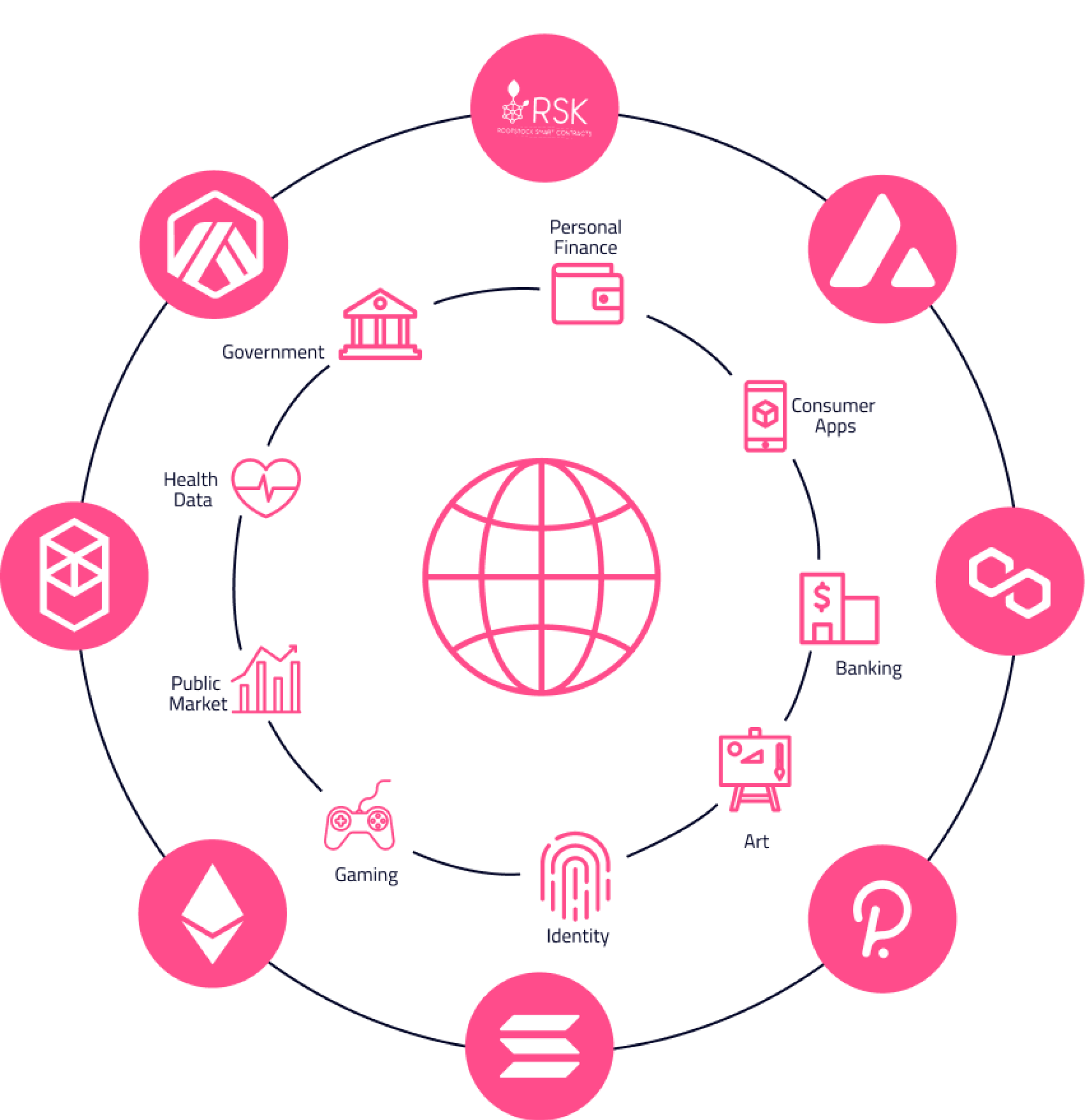Following continued traction and Covalent’s gradual shift to a decentralized model, Covalent is positioned for development and growth that is community-led. A project that will be self-sustainable. The Covalent Query Token (CQT) will be essential to this.
The Covalent Query Token is the native token of the Covalent Network. An ERC20 token, CQTs functions can be broken down into the following:
Staking & Infrastructure:
Node operators, who first have to meet the minimum staking requirement to become such, are compensated in CQT for honestly fulfilling their roles (or role) by voting, and validating data requests. Furthermore, those who wish to contribute to securing the Covalent Network but do not wish to run a node, can delegate to a validator and earn staking rewards in CQT.
Governance:
Those who hold CQT and have a vested interest in the network will be able to vote using CQT for on-chain proposals put forward by the community
CQT Operating in the Covalent Network
CQT is not a payment token, rather a means of settlement. When the network is fully operational, there will be a fee to call the API. When an API call is made, they will pay in a US denominated stablecoin such as USDC. The contract will then perform a market buy of CQT using this USDC. The CQT is then distributed to the wallets of node operators as a reward for answering the API query.

There are three primary reasons why the API mechanism is priced in USD:
- Stablecoins are the most highly adopted and liquid tokens in the web3 ecosystem.
- Enterprise customers do not want to hold a token that is susceptible to volatility on their balance sheets.
- It makes measuring the expense of using the Covalent API easier to budget.
Mechanisms Designed by Governance
There are two sides to the Covalent Network; the supply side, which is made up of indexed blockchains and their respective data as well as the demand side, which consists of the developers, analysts and multiple protocols using the Covalent API.
The mechanism in which the demand side interact with CQT is discussed above whereby a market buy of CQT will occur each time an API call is made. However, as the adoption of the network increases once live and governance becomes more prominent, it is anticipated further mechanisms will be designed and implemented. These may include using any ERC20 token to pay for an API call or paying for an API call using CQT for a reduced rate.
Staking on the Covalent Network
Your opportunity to power the Covalent Network, the interface for accessing the data of Web 3.0, is coming. In the coming months, Covalent will be launching single-sided staking as the first nodes, which are a group of whitelisted validators functioning as block specimen producers, go live.
Staking will be an essential feature of the Covalent Network. Any node operator of the network will firstly have to stake a minimum amount of $CQT in order to become one, no matter the role. This is to ensure the data being captured, provided, and queried by nodes is honest and trustworthy. If it is not, slashing of the parties staked $CQT will occur.
As a reward for servicing the network, node operators and anyone who chooses to delegate their $CQT stand to earn $CQT through the automatic on-chain issuance, or the ongoing creation of new tokens distributed to value-added actors.
AlchemistDAO
AlchemistDAO stems from the first version of the Alchemist Program and brings together a community of innovative data-nerds within the Covalent network, breaking barriers, and creating a new economy powered by data.
CQT facilitates the output of a decentralized community of analysts and developers who attract partner funding and build projects on a contract-basis. CQT not only permits access to this community, but it acts as compensation for individuals that are actively building and adding value in our ecosystem, and facilitates the governance of the DAO and Guilds.
Learn
Blockchains
To learn more about our indexing process and inquire about having your blockchain indexed to better serve your developers, DM a core team member on our
Discord channel or write a proposal on the
Covalent Discourse.
Analysts / Developers
Interested in learning how leading protocols are using Covalent? Check out how
CoinGecko,
0x, and Zerion are using the Covalent API.
STAKING / DELEGATING
Meanwhile, if you want to learn more about the Covalent Network and the role CQT plays, check out Stake in the City.





